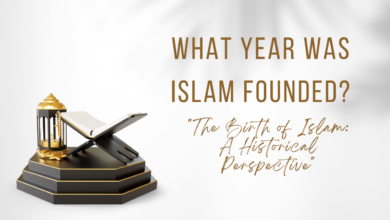Islam Sacred Text
Exploring Life's Excursion: Disclosing the Insight of Islam's sacred Texts

Islam Sacred Text

Presentation:
Islam, one of the world’s major monotheistic religions, finds its direction and standards established in an assortment of sacrosanct texts trusted by its supporters to be the immediate expressions of God. These sacrosanct texts act as a complete aide for Muslims, molding their convictions, practices, and lifestyle. The essential wellsprings of Islamic lessons are the Quran, Hadith, and Sunnah, each holding an exceptional importance in the existence of a faithful Muslim.
The Quran:
At the core of Islamic hallowed writing stands the Quran, considered by Muslims to be the strict expression of God as uncovered to the Prophet Muhammad through the lead celestial host Gabriel over a time of 23 years. Involving 114 sections, or surahs, the Quran covers different parts of life, including ethical quality, regulation, direction for individual lead, and religious standards. It is loved for its persuasiveness, direction, and as a wellspring of comfort for a huge number of devotees.
The Quran’s design is coordinated into stanzas, or ayahs, written in traditional Arabic. It tends to different subjects, including the unity of God (Tawhid), the job of prophets, existence in the wake of death, and the significance of moral way of behaving. Muslims accept that the Quran is a finished and last disclosure, relevant to all parts of life.
Also Check
Hadith:
The Hadith, containing the expressions and activities of the Prophet Muhammad, fills in as the subsequent essential wellspring of Islamic direction. It supplements the Quran by giving pragmatic instances of how the Prophet executed its lessons in his regular routine. Arranged by researchers soon after Muhammad’s demise, Hadith assortments contain reports about his words, activities, and endorsements or dissatisfactions.
Hadiths are classified in light of their legitimacy and unwavering quality. The most believed assortments incorporate Sahih al-Bukhari and Sahih Muslim. Muslims allude to Hadiths for extra direction on issues not expressly shrouded in the Quran, assisting with explaining and develop its lessons.
Sunnah:
The Sunnah, frequently utilized conversely with Hadith, alludes to the practices and customs of Prophet Muhammad. While the Hadith gives a printed record of his truisms and activities, the Sunnah includes a more extensive degree, consolidating his way of life, habits, and, surprisingly, quiet endorsements.
Muslims think about the Sunnah a crucial hotspot for grasping the Quranic lessons in a useful setting. It assists devotees with exemplifying the standards spread out in the Quran and explore contemporary difficulties by copying the Prophet’s model.
End:
The hallowed texts of Islam, including the Quran, Hadith, and Sunnah, altogether structure the foundation of Islamic lessons. These sources guide the existences of Muslims around the world, giving an extensive structure to otherworldly, moral, and social direct. The Quran’s persuasiveness and immortal significance, combined with the functional bits of knowledge found in the Hadith and Sunnah, offer a comprehensive aide for devotees looking to live as per Islamic standards. In investigating and sticking to these hallowed texts, Muslims track down a wellspring of motivation, shrewdness, and heavenly direction that rises above general setting.

Frequently Asked Questions about Islam’s Sacred Texts
What is the Quran, and for what reason is it considered sacrosanct in Islam?
The Quran is the sacred book of Islam, accepted to be the immediate expression of God uncovered to Prophet Muhammad. It fills in as a complete aide for Muslims, covering moral, legitimate, and religious standards.
What job do Hadiths play in Islamic teachings?
Hadiths are the platitudes and activities of Prophet Muhammad, giving functional instances of how to carry out Quranic lessons in day to day existence. They act as a correlative source to the Quran.
How is the Sunnah not the same as the Hadith?
The Sunnah envelops the practices and customs of Prophet Muhammad, including his way of life and quiet endorsements. While the Hadith explicitly records his idioms and activities, the Sunnah is a more extensive idea.
Why is the Quran written in traditional Arabic, and how could it be deciphered today?
The Quran is in traditional Arabic, accepted to be the language of the heavenly disclosure. Understanding (Tafsir) is finished by researchers to make sense of its implications, and interpretations are accessible in different dialects.
Are there explicit rules on how Muslims ought to move toward the Quran and Hadith?
Indeed, Muslims approach the Quran with highest regard, frequently performing bathing (wudu) prior to contacting it. Hadiths guide different parts of life, and genuineness is pivotal in their application.
Can Muslims depend entirely on the Quran for direction, or is the Hadith necessary?
While the Quran is the essential source, Hadiths give extra bits of knowledge and pragmatic models. Together, they offer a comprehensive comprehension of Islamic lessons.
How do Muslims integrate the lessons of the sacrosanct texts into everyday life?
Muslims endeavor to typify Quranic standards and observe the model set by Prophet Muhammad in their day to day routines. The holy texts guide moral direct, petition, everyday life, and local area connections.
Are there various adaptations of the Quran, and how is it preserved?
No, the Quran is thought of as unaltered since its disclosure. It has been remembered by quite a few people, guaranteeing its safeguarding, and printed duplicates overall stick to a similar text.
What is the meaning of discussing the Quran in Arabic during prayers?
Discussing the Quran in Arabic is an approach to interfacing with the first heavenly language. Muslims frequently remember segments in Arabic, regardless of whether their essential language is unique.
How do Muslims view the sacrosanct texts with regards to current times?
Muslims accept that the Quran and Hadith give immortal direction appropriate to all times. Researchers proceed to decipher and apply these lessons to contemporary issues while maintaining their center standards.






